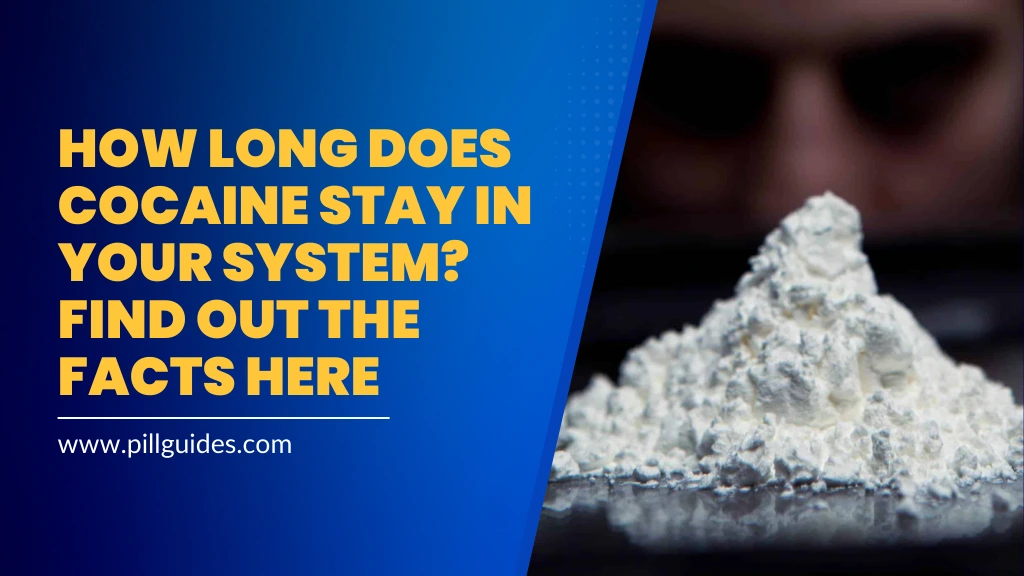Cocaine is a stimulant, very addictive, that can affect the mind and body in serious ways. For people who could be taking a drug test or just getting out of addiction, knowing how long cocaine stays in your system is key. In This Article covers the cocaine timeline in the body, effects and what to expect during withdrawal.
Understanding Cocaine and Its Effects
When used, it makes a person feel euphoric and has a sudden burst of energy because dopamine is released when you eat it. The effects are short lived however users have to take frequent doses to have a high and with continued use this can quickly lead to addiction.
Key Effects of Cocaine:
- Increased Alertness and Energy: If you have used cocaine before you’ll know you have a burst of energy, plus a heightened focus.
- Dilated Pupils (Cocaine Eyes): Typically, the pupils are dilated and are called ‘cocaine eyes’ for obvious reasons.
- Increased Heart Rate and Blood Pressure: However, they can put serious strain on the cardiovascular system.
How Long Does Cocaine Last in the Body?
However, the length of time cocaine remains in your system and is detectable varies, depending on how much cocaine was taken, how often it was taken, and how it was taken. When snorted, cocaine “high” typically lasts 15 to 30 minutes, and when smoked or injected, 5 to 10 minutes.
Factors Influencing Cocaine’s Duration in the System
1. Method of Use: The way in which cocaine enters the bloodstream depends on snorting, injecting or smoking.
2. Dosage and Frequency: Longer detection window can be achieved by using larger doses or by frequent usage.
3. Metabolism Rate: Cocaine may be removed quicker by people with a faster metabolism.
4. Age, Weight, and Health: As we get older or if we have liver issues, we process cocaine more slowly.
How Long Does Cocaine Stay in Your System?
Cocaine is broken down in the liver into different substances, including mostly benzoylecgonine which can often show up on drug tests. Below is an approximate timeline for how long cocaine can be detected in various parts of the body:
1. Blood:
Blood tests will detect cocaine within minutes of your use of it. However, it remains in the bloodstream for a relatively short time:
- Detection Window: Up to 12 hours
- Why It’s Short: Cocaine has a blood half life of around 1 hour so blood concentration is relatively modest fairly quickly.
2. Urine:
The most accurate and with the longest detection window of cocaine use is urine tests.
- Why It Lasts Longer: Cocaine is metabolised into benzoylecgonine, and while the body can metabolize cocaine faster than benzoylecgonine, it will linger in the urine longer than the parent drug.
3. Saliva:
This enables saliva to be used in a non invasive, roadside testing and employment screening.
- Detection Window: 1 to 2 days
- Effectiveness: Saliva detects cocaine as soon as it is used, but the detection is not as long lasting as urine.
4. Hair:
Hair follicle tests have the longest detection window and the ability to detect use over a long period of time.
- Detection Window: Up to 90 days
- Why It’s Effective: Hair grows and as the hair grows, it becomes full of cocaine and its metabolites which serve as a historical record of use.
Signs of Cocaine Use
Drug tests are not the only way to detect cocaine use; physical and behavioural signs can also show the cocaine being used. Common indicators include:
- Dilated Pupils: This is a known sign of recent use, meaning ‘cocaine eyes.’
- Runny Nose or Nosebleeds: Snorting over and over again can damage your nose, resulting in bleeding, a runny nose or other problems.
- Increased Energy or Hyperactivity: Users may be apparently vivid, talkative, and restless.
- Paranoia or Anxiety: Extreme nervousness or paranoia is caused by high doses.
- Weight Loss: Repeated use might result in appetite & a loss of weight.
Cocaine Withdrawal: What to Expect
If the regular user of cocaine stopped, he may start to experience withdrawal symptoms as the body adjusts. While cocaine withdrawal doesn’t typically cause the same intense, severe physical symptoms as withdrawal from alcohol or opioids, it can be just as unpleasant.
Common Cocaine Withdrawal Symptoms:
1. Fatigue and Exhaustion: The effects of the stimulant can wear off with extreme tiredness that may come on.
2. Depression: The feeling of sadness or hopelessness can be explained in part by a drop in dopamine levels.
3. Increased Appetite: This may raise Tiredness as the body resumes.’
4. Cravings: A desire to use cocaine again to get rid of withdrawal symptoms.
5. Anxiety and Irritability: It may cause agitation, mood swings and psychological symptoms.
How to Speed Up Cocaine Elimination From Your System
The body does eventually break down and eliminate cocaine, but there are some things you might be able to do to speed up that process. But, these aren’t foolproof and should never be used to pass a drug test.
Tips for Faster Elimination:
1. Stay Hydrated: Therefore, many people suggest that drinking a lot of water can flush out metabolites through urine.
2. Exercise Regularly: Physical activity speeds up metabolism and thereby raises the concentration of sweat, which in turn might dilute some of the toxins in the body.
3. Healthy Diet: A diet of good nutrition with plenty of fibre may help liver and kidney function.
4. Avoid Alcohol: Cocaine and alcohol don’t mix they can combine to create a dangerous compound known as cocaethylene, which lingers in your blood.
5. Get Plenty of Rest: As a component of natural detoxification, adequate sleep is required.
Conclusion
cocaine is a highly addictive drug and can cause severe and long lasting damage to the body and mind. For individuals going through drug testing, or even those wanting to kick a habit, it is helpful to know how long it stays in your system.
If you, or someone you know, is using cocaine, it’s important to seek professional help. With the proper support and kind of treatment, recovery is possible.
Reference
1. National Institute on Drug Abuse (NIDA): Information on the effects of cocaine and its addictive nature. NIDA – Cocaine DrugFacts
2. Mayo Clinic: Insights on the health risks associated with cocaine use and detection times. Mayo Clinic – Cocaine Use
3. American Addiction Centers: Detailed resources on cocaine withdrawal and recovery processes. American Addiction Centers – Cocaine Withdrawal
4. Substance Abuse and Mental Health Services Administration (SAMHSA): Guidance on seeking help for substance use disorders. SAMHSA – Help and Resources
5. Healthline: Comprehensive articles on how cocaine affects the body and methods of detection. Healthline – Cocaine Effects and Testing
Disclaimer:
This article is for information only, and is not medical or professional advice. Cocaine use can put people at risk for serious health issues and legal consequences. If you or one you know is using drugs and alcohol Please get professional help now The information contained here is from general research and is not a substitute for consultation with your qualified healthcare professional. It is always wise to consult a medical expert before taking a guess on what may be the cause of your problem and get personalised treatment plans that can repel your problems.
Read More: Pseudoephedrine Explained: Uses, Dosage, Side Effects & Warnings
FAQs How Long Does Cocaine Stay in Your System?
How long does cocaine stay in your blood?
The blood can test positive up to 12 hours after use. But the window of time on which this change can occur may vary with dosage, frequency, and with an individual’s metabolism.
Can routine drug tests detect cocaine?
Cocaine is indeed detectable in virtually all standard drug tests, and urine tests, used so frequently for workplace screenings and other medical purposes, are particularly good at spotting it.
If you are a heavy cocaine user; how long does cocaine stay in your urine?
Cocaine metabolites persist in the urine of chronic or heavy users for one or more week’s depending on how much of the substance is accumulating in the body.
What are the symptoms of withdrawal from cocaine?
Fatigue, depression, increase in appetite, intense craving, anxiety and irritability are among the withdrawal symptoms. The severity is determined by the amount used and length of time.
Does drinking water speed which cocaine is flushed out of your system?
Keeping yourself hydrated can help kidneys clear out the metabolites through urine. But it may not help that much to speed up the process enough to matter to drug test results.










